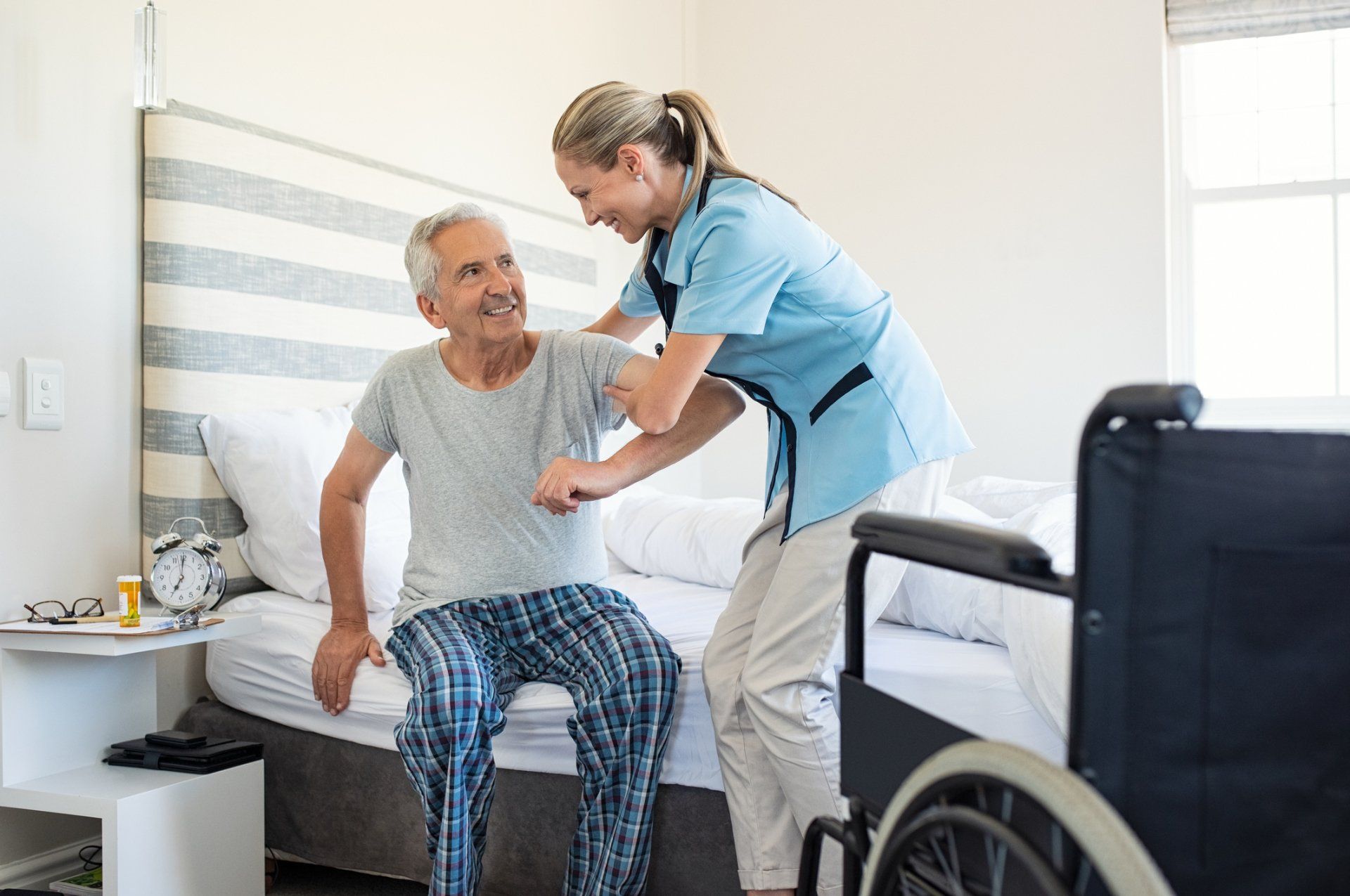Family Caregiver Tips: Infection Risks and Prevention for the Elderly
Home care has many benefits for the patient and their family members. Seniors have the company of the people they love and spend their days surrounded by familiar objects. The family can monitor the care of their loved one and have more time to spend with them.
Many family members take on the role of caregiver without any prior medical experience. The lack of training can cause some concerns. Infection control is one of the most serious issues everyone should learn about when they have an elderly family member convalescing at home.
Importance of Infection Control
Good infection control practices reduce hospitalizations and save lives. One-third of all deathsin people over the age of 65 is due to infectious diseases. Seniors have weaker immune systems due to their age and can become even more susceptible to infection when they are ill.
Types of Potential Infections
Skin infections, urinary tract infections (UTIs), and infectious diseases like influenza and pneumonia are the biggest risk factors for seniors. Even more worrisome is the risk of sepsis that can develop when other infections begin.
Sepsis is a life-threatening overreaction of the body to an infection, which develops quickly and causes extensive damage. About 65 percentof hospitalized sepsis cases are elderly patients, and about one-third of sepsis sufferers worldwide do not survive. The condition can restrict blood flow to the organs and lead to their failure.
Symptoms of Possible Infection
The signs of problems like pneumonia and skin infection are common enough for most people to identify easily. UTI infections in the elderly do not cause the symptoms people normally expect. In seniors, the symptoms are often behavioral changes rather than physical issues, and these changes can include agitation, hallucinations, and confusion among others.
Sepsis symptoms include a change in body temperature to either higher or lower than the normal readings. Warning signs include a fever of 101.3 degrees or higher and low temperatures of 95 degrees or below. Other sepsis symptoms include a rapid heartbeat, rapid breathing, and confusion or shaking.
Methods to Prevent Infections
Hand washing is still one of the best ways to reduce the spread of infectious diseases. Anyone with a cold or another communicable disease should wear a face mask and gloves when they care for an elderly loved one. Wash bedding often and keep items like thermometers and other medical supplies sterilized.
Clean and cover all cuts, scratches, or other lesions. Even minor wounds can become infected in someone with a weakened immune system. Some dementia patients may even pick at uncovered wounds. Check the blemishes daily and seek medical treatment if signs of infection, like redness or swelling, begin.
Regularly inspect their feet because they can also suffer from foot infections too. Diabetics have an even greater risk of this type of concern. Keep the feet clean and be cautious not to puncture the skin when trimming nails.
Vaccinations against infectious diseases can reduce the risk of illness. Insist on flu and pneumonia vaccinations as well as the shingles vaccine for anyone susceptible to the disease. Antiviral medications can help to reduce the severity of the flu and antibiotics can help with pneumonia recovery.
Get professional help with any medical care where mistakes could cause an infection. For example, caring for open wounds, catheter insertion, or cleaning around implanted ports. Ask a home health provider for help or guidance with the process.
Infections cause pain and risk, and that is exactly what loved ones want to prevent by having their family member at home. A control plan lowers the chance of infections. A Visiting Redi Nursecan also help. Our professional home caregivers have the experience and skills to keep your loved one safe and comfortable. Contact us for more information.
5. Assists in Infection Control
One of the hidden hazards for seniors or those living with disabilities is infection; it can debilitate and kill an otherwise healthy individual when left untreated.
Home health aides have been trained in infection control and infectious disease management. They are likely experienced at coping with MRSA, C-Diff, and other diseases that the elderly, house-bound, or hospitalized patients are prone to. They can not only help keep the patient healthy and infection-free, but also strive to keep the environment clean of pathogens that could cause problems.
6. Provides Social Interaction
Maybe the most important role of a home health provider is the social interaction and engagement that they provide to seniors. Since aides often work with the same seniors for months or years, they establish a relationship that can be therapeutic for the client. This proves particularly beneficial for seniors and shut-ins that have transportation hurdles and don't see others often.
Often, a medical social worker works in conjunction with home health aides and the entire treatment team. With the help of a home health aide, the medical social worker can help their clients overcome conditions and improve their quality of life in some instances.
There are numerous benefits to putting a support system in place for a senior that includes home health aides. To learn more, talk to the professionals at Redi-Nurse, and glean what aging in place looks like for your loved one.






